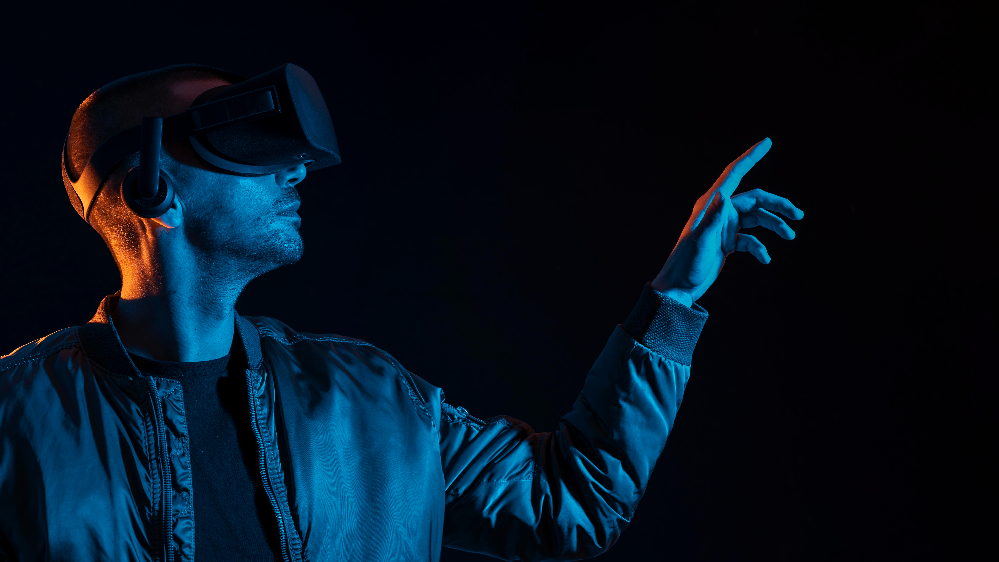The pandemic was a catalyst that forced the massive use of digital media to replace face-to-face international business meetings with virtual international business meetings. There were many successful and unsuccessful experiences of large virtual business conventions, virtual visits to museums and tourist sites, virtual concerts, virtual sports and art classes, virtual exhibitions, and fairs. All of them are unimaginable in the pre-pandemic where it was even ridiculous to think that children and adolescents take remote classes and stop socializing with their friends. Where the very idea of a paid virtual music concert would be doomed to total failure just by mentioning it. Where learning music and playing music via video conference would be very frustrating. Well, all that and much more was done and learned during the pandemic. Today the practice of doing business remotely is here to stay. And in that context, virtual events in the metaverse are a reality.
Virtual events have been taking place in various ways from a simple video call with presenters and speakers that are supported by content that is shown in screen sharing options. In other cases, it makes use of social media streaming tools. Others develop their events on web platforms like 2D, 3D, or metaverse video games where they freely customize the experience, its content, and branding management. In all these cases, attendees can attend the event through their desktops or mobile devices such as cell phones and tablets, with the advantages and disadvantages of such equipment. So, let’s see some metaverse tips to host an event for you brand.
What exactly is the metaverse?

“A shared 3D experience” according to Matthew Ball, author of Metaverse Prime, “the reinvention of the internet” according to Martin Migoya, CEO of Globant, “parallel reality”, “parallel universe” or “virtual world” for many, the term came from a 1992 Snow Crash novel. In all cases it refers to virtual or three-dimensional spaces where you can interact with others, entertain, meet, work and even buy clothes and land.
It is a virtual representation similar to external reality that can be accessed through augmented reality devices such as sensors, glasses and haptic gloves. But there is not a single metaverse per se but multiple ones, each company can create its own such as Meta with Horizon Worlds and Horizon Workrooms.
What impact will the metaverse have?
At first the metaverse only corresponded to spaces of enjoyment and entertainment, as it is in platforms such as Roblox, Fortnite, Axie Infinity and Minecraft. However, many other companies have created their own space to access the benefits and expand their possibilities.
Currently the reach goes beyond virtual games; with metaverses such as Decentraland, which brings together brands such as Balenciaga and Nike, where you can buy land and create NFTs to sell.
In the realm of film and audiovisual production we appreciate the current reach with the latest installment of the Matrix. In the world of cryptocurrencies, in search of financial development, the Ethereum blockchain has developed the aforementioned Decentraland, also The Sandbox, while Polygon Network built Somnium Space and Blocktopia, the Solana blockhain, developed Star Atlas and even Nasa is planning a metaverse on Tuesday.
Although all these alternatives exist, the metaverse is still a blank canvas in development. So let us tell you what positive and negative implications we can envision:
Some positive considerations of the impact of the metaverse:
- Revolutionizes learning: passive and receptive education becomes hands-on learning.
- Access to talent and training without limits of physical boundaries to work or to learn.
- It can have a positive impact on the environment by reducing the displacement of people moved by fossil fuels.
Metaverse for yor brand: Virtual event ideas

We can give general recommendations on how to choose the metaverse platform that best supports our remote event. The main recommendation is that the platform is the medium where the content will live that will make the cognitive and sensory experience of the attendees a reality. In other words, the platform itself is not the only important thing for the event to be successful or not.
A successful event requires the design of a valuable experience, getting the people for whom the experience will be valuable to attend and not others, developing content that ensures that attendees have the valuable experience that was designed, to get attendees to react positively to the content such as feedback that they lived the experience in their way and it generated value, capturing a metric that allows the event organizer to take action to achieve the expected result of the event.
That said, each tool offers advantages and disadvantages. And instead of thinking first about the tool to later adapt the experience, audience, content, and feedback capture, the event must be designed first, and then the tool that best adapts to said design must be defined.
If it is a simple, short, and direct message that does not require further audiovisual support, it does not require personalized branding either and, due to the profile and number of attendees, it is enough to fill out a very limited survey. In that case, perhaps the video call tools are the most recommended, in addition to having a speaker with experience in keeping the audience interested, who may have many distractions appearing on their device.
What are the benefits of events in the metaverse?
Companies and brands find spaces to expand their commercial horizons because the metaverse represents among its most important benefits:
- Business opportunities to expand commercial product lines.
- Improved online shopping experiences.
- An innovative way to stand out from others.
- A channel to connect with young audiences.
- Estimated to contribute 2.8% to global GDP.
How to organize a successful metaverse event?

There are some guidelines to organize a successful metaverse event:
- Work as a team and in constant communication: all participants of the event, from presenters, facilitators as technical team must be dancing to the same rhythm. For this it is important to organize all the details and polish them to the maximum, outlining well-defined objectives and stipulating the times.
- Previously evaluating the ideal platform for the event is important because it will save you time, money and effort. Everything will depend on the type of event. For simple events such as seminars or meetings, Webex, Sype or Microsoft Teams work very well. For participatory workshops, Zoom is ideal because it offers, in addition to instant messaging, call recording and monitoring of participants, the creation of virtual rooms parallel to the work of the initial group. It provides event participants with all the information they need before the event, such as passwords, support contacts or any type of technological or technical requirement.
Next, we will give you a small guide of virtual event ideas to get you started!
-
Set a goal
Usually, there is a set of basic steps for planning an event, and a virtual one is no different, which means that before establishing a budget, selecting a venue, organizing content, and marketing, you must set a goal for your event in order to remain focused.
So, the key to success here is understanding the purpose of the event and how your attendees will value it.
-
Select the best venue for your goal
You will have to ponder on what is the best fit for your event. There are so many spaces that can be customized to tailor your needs. Research and inform yourself about the metaverse, and make a pros and cons list to pick the right one for you
-
Help your attendees
Most of the time the metaverse will require attendees to use some type of new software that they probably most won’t be familiar with. So, before the event to ensure that it runs smoothly, create for them a guide on how to manage the software in your metaverse platform.
-
Maintain your guest’s connected
Keeping your guests engaged will be the biggest challenge you will have, so you will have to think about ways of making the event more collaborative and replicate the social interactions that happen in real-life social events. You can make activities such as hosting interactive polls or live Q&A sessions for example. Get creative!
How to incorporate the metaverse into your marketing strategy?
Undoubtedly, although the metaverse is still in its infancy, it is growing by leaps and bounds to make way for the combination of the virtual era with reality as we know it. In fact, it is estimated that within 5 years, 70% of companies will have a presence in the metaverse. So to innovate and stand out in the world of marketing within the metaverse you must be managing how to be part of the story.
Tips to incorporate positioning strategies:
- Include visual content to promote visual search. Texts are being relegated and people are looking for pictures, screenshots and other visual elements.
- Promote hybrid codes, i.e., redeemable in the metaverse or in reality.
- Promote virtual content in your content strategy adapted to this new consumption channel.
- Influencers can present their “virtual twins” to promote brands, so as a company you can hire this type of services.
- Allow your customers to buy directly from virtual platforms with virtual stores (e-commerce).
Want to incorporate the metaverse into your marketing strategy? we can help you
In Stringnet, we are experts in marketing BTL, hybrid activation, virtual and augmented reality, gamification, motion graphics, and more. We can build a metaverse strategy tailored for your brand.
We can help you develop every detail of the experience in a personalized way.


